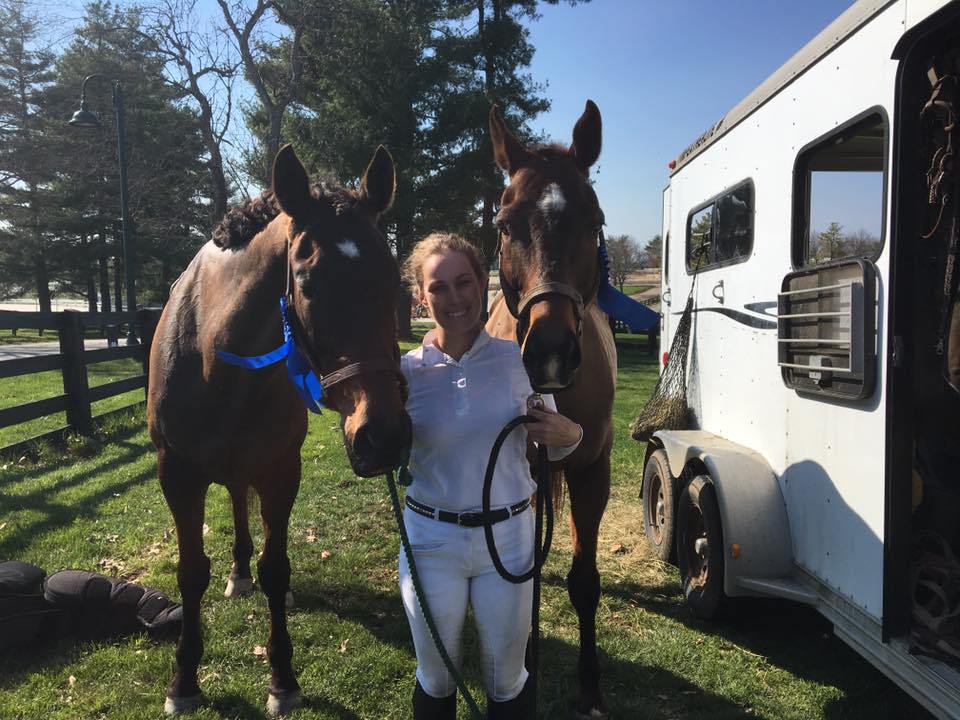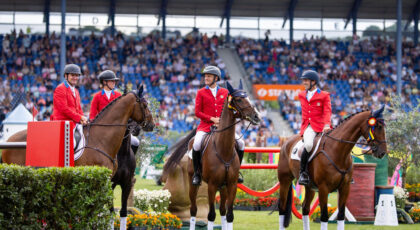I hum this in my head to the tune of “Where Have All the Cowboys Gone?” by Paula Cole at least once a week, and even moreso this last week as I worked the Keeneland September Yearling Sale.
The leg man.
The horse whisperer.
The foaling guy.
The breaking girl.
The bread and butter of our industry; people who used to be revered and applauded. The cowboy you would send to get your horses broke, or the barn foreman who could feel a tendon strain weeks before an ultrasound would pick anything up. The men and women whom we hear are missing nowadays from our vocal elders. Men like Denny Emerson and George Morris, who are willing to stick their neck out to the guillotine as they lament the good old days, where riders were horsemen and women first and foremost and ‘equitators’ second.
And this goes out to so many aspects of the equine industry, but here I see the majority of my friends move away from the barns of the Thoroughbred breeding industry. Men and women who I considered the good ones, who I considered true horsemen, moving on from the daily chores of mucking and bandaging for the comfort of heated offices and 9-5’s, Christmas vacation and open toed shoes.
I lamented on this with a fellow farm manager last week during the sales when he asked about my manfriend and what his plans were. His plans? He planned to do what he was phenomenal at: being a horseman.
Luke is a broodmare manager, and one of the best birth attendants I have ever seen in a foaling stall–and that is coming from me, someone who has her doctorate in equine reproduction.
Year in and year out, Luke is the first human face that these future champions see. He can reposition the worst dystocia, calm the most panicked mare, and assist the first steps of the most leggy foal. I watch in appreciation of this skill set. This mastery.

But this mastery will never make him millions. His job is one that is at best under-appreciated, and at worst, overworked. From January 1st until July he works 100 hour weeks. A herd of broodmares and their progeny count on him never sleeping in, never being ill, and never taking a personal day. It does not matter if there are two feet of snow on the ground or 100 degrees with 80% humidity, he is there.
I have seen him leave the house after cradling the porcelain god, riddled with the flu. I have seen him put chains on his tires and haul a generator to the barn without electricity. And, I have seen him miss weddings, funerals, births and parties simply to give that foal a good chance at a great life.
In exchange for all this the rewards are simple: the first guttural whinny of a filly and the first wobbly steps of a colt. He earns smiles as they accept their first bit and a pat on the back when they sell well. And on rare occasion he gets a mention in an article if they win.
It is not a lucrative lifestyle, nor a comfortable existence. It is filled with constant sleep deprivation, long hot days and even colder nights. A phone permanently attached to your hip and truck keys in your fist.
Not many want to do it, and because of that, few do. Even fewer stick around.
But that is the problem. We are losing those fine men and women who are innately born with these gifts. The feel of a hot leg. The scent of impending parturition. The detection of a disgruntled stomach.
And why? Because they are undervalued.
These men and women are worth their weight in gold and grain, and yet, they are often dismissed for someone cheaper and less experienced. Or, they are under-appreciated and dismissed for their undying effort to keep their herds well, leaving them disgruntled and restless.
You look around at horse shows and see less and less of these people. You look around the yearling sales and see a similar predicament. And it’s not because we aren’t creating these magical creatures. No, they exist, but they are choosing to move off into other realms. They find those jobs in the comfy offices with weekends off. Weekends where they can compete themselves or watch their horses gallop across the wire from a covered box.
It’s the duality of the job. Those who love the creatures the most are found caring for those that they do not claim ownership of.
I was one of them. I devoted my entire life to 30 mares and their progeny that I would never get to call my own. In exchange for my undying devotion, I never got to ride my own horse. I never had a weekend day off to compete my own horse, but at the end of the day, I couldn’t afford to, either.

I sacrificed my own personal equestrianism in order to encompass and assist a larger herd. And it wore on me.
I loved being a farm manager. I loved being a horseman. I still work the sales, even now having finished my doctorate and being considered “above” the job of yearling showman. But I love reading those young horses too much. Getting into their brains and unlocking the chains. Figuring out how to make them walk better, stand better, behave better. For a true horseman, it’s an addiction; an addiction that’s impossible to break.

But I left the role as farm manager because of the lifestyle—just like so many before me. I wanted to own my own horses, have time to ride my own horses and afford my own broodmare or racing stock.
I fear for these industries if this is the path we continue to head down. Dismissing those skilled horse whisperers and allowing them to run away and leave the cherished cement walls of the foaling barns and training tracks for a more comfortable existence.
I don’t know what the solution is, but a part of it is in celebrating the true horseman, thanking them for their expertise and praising them for a job well done while acknowledging that without them, our industry will fail. Because I know where all of the horsemen have gone–away. And we’ll never get them back. Let’s keep the good ones we still have.
About the Author
Carleigh Fedorka holds a Ph.D. in Veterinary Science from the University of Kentucky’s Gluck Equine Research Center. A Pennsylvania native, she moved to Kentucky after graduating from St. Lawrence University and has worked closely in all aspects of the thoroughbred industry. She spends her free time eventing as well as training, selling and rehoming OTTBs. Read more about her horse life at her blog, A Yankee in Paris.


 September 24, 2017
September 24, 2017 

























